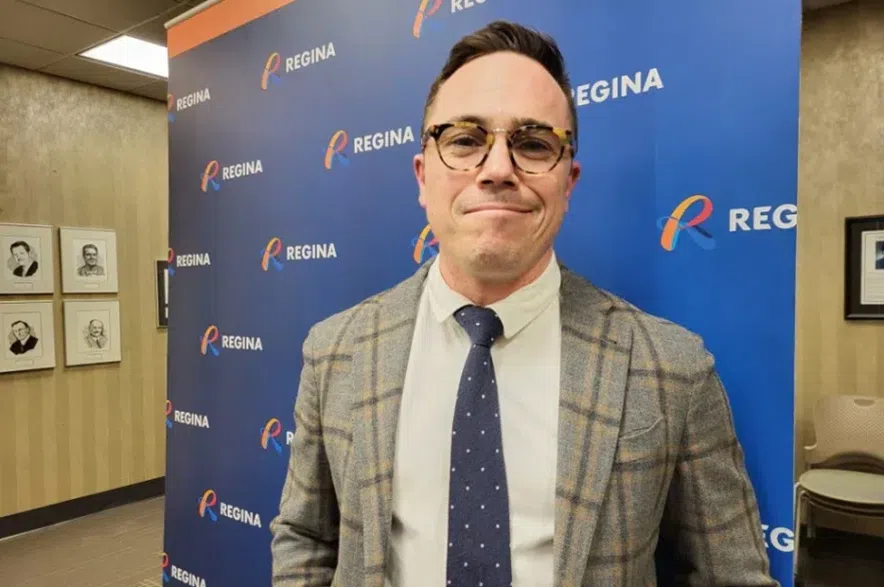Ward 3 Councillor David Froh says it’s time to make some hard decisions when it comes to the City of Regina’s budget.
During an appearance on the Greg Morgan Morning Show on Monday, Froh said if the city must increase property taxes this year, then future years will need to become more sustainable.
Froh’s comments comes as the city is forecasting a property tax increase of 15.69 per cent in order to maintain current service levels.
He said the city is in a tough financial situation because previous councils used reserves to cover operational shortfalls.
Listen to the full interview with Froh or read the transcript below:
The following transcript has been edited for length and clarity.
GREG MORGAN: You and a few other council members have been active on social media trying to enlighten citizens on how this process is going down. You mentioned when you were elected a year ago, you didn’t expect to see numbers like this. In your view, how many years have we been kicking the can down the road now?
DAVID FROH: We have some hard choices to make as a city, but the way we make hard choices is with complete honesty and transparency about why we got here and how to get out. I respect that people are frustrated. I am too, but thankfully prairie people aren’t afraid of hard work or decisions. We take care of our neighbors, and I think people should run away from politicians that try to be popular.
While I’m new, it’s clear to me we kept taxes artificially low for political reasons, and in years past, we used reserves to cover operational shortfalls. Look at 2018/19; the library as example. They had a zero per cent increase. We were giving REAL, then, roughly $300,000 a year. They probably should have been getting $3 million a year, because today it will take about $50 million to fix the buildings at REAL, and we subsidize them to the tune of $35,000 a day.
No one wants to raise taxes on their neighbors, but when you ignore an infrastructure deficit, or when you agree to do a bunch of things but have them happen in two years, or endlessly debate things like an indoor aquatic center, it gets more expensive.
The vast majority of things in the budget are really core services and infrastructure. We’re talking about massive investments into water infrastructure and equipment and money to fund our police – which is $130 million – fire and snow removal.
You mentioned cuts. That is what we have to balance. We have to balance our citizens’ ability to pay, and some folks are struggling right now. But I can tell you when I look at the surveys, people endlessly want more services, more infrastructure and programming and lower taxes. That’s not sustainable. We’ve got to decide what kind of city we want.
What kind of cuts are you going to have to consider?
FROH: We’re looking at over 130, totalling roughly $68 million. People are mad about potential tax increases; they’ll be furious about cuts. In my ward, some of the items being considered are things like the Cathedral Community Association – that costs the average resident 13 cents a month – the Neil Balkwill Civic Arts Centre, outdoor hockey rinks, reducing our maintenance to parks and transit, and even fire, like fire staff, which is absolute insanity. I was in economic development most of my life. I’ve worked in a lot of places, and I can tell you the best cities invest in a great quality of life. We don’t have oceans and mountains. We have to build great things here. We have to be affordable. We have to be safe, but a welder and a teacher and a doctor can live anywhere, so if we don’t invest in quality of life in Regina, which is a core mandate for a city, then we won’t have a great quality of life. That’s the balance that we’re dealing with.
The floral conservatory has a lot of social media going on this weekend because it’s one of those considerations. Any comment?
FROH: We’re not going to cut the floral conservatory. That’s insanity. I think they get roughly $60,000 a month, but that’s a great example because there are dozens of organizations like that. They get anywhere between $5,000 and $50,000 from the city and are working with kids that might be struggling or to keep seniors active. But these are the things that the city has to balance in the end. We’re competing with Saskatoon, Winnipeg and Calgary.
The good news is one, we’re not going to cut that funding – at least I won’t – and two, if we get it right this year, if we make some hard decisions – which probably will include a tax increase – then future years are sustainable. We’re looking at manageable, predictable increases, but if we don’t, (and) continue to ignore what it costs to run a city, then we’re going to have to re-litigate this every year. So it’s time to make some hard decisions, and it’s time to decide. Do you want your city involved in recreation? Do you want your city involved in some of these things?
A lot of people ask, why don’t you poke at REAL or Economic Development Regina, who stood before you at a recent council meeting and really had not much to show for what they’re asking for? Do you hear that from a lot of your constituents?
FROH: We have an obligation to current and future residents to have a prosperous economy. Economic development’s budget costs the average person in Regina about 10 cents a month. So we won’t get there by closing down EDR. REAL gets over a million visitors a year. I’m there with my kids four times a week. It’s probably the most important civic asset we have. I put forward a motion last year that will decide whether we wind down REAL as a municipal corporation and take it over, but the truth is, you and I and everyone listening own those buildings. People are there every day for hockey and soccer. We can’t allow it to fail. We have an expectation of being a good service provider and taking care of our assets. That’s our job now, make the hard decisions and put in place the right leadership. They got a great new board of volunteers and they’re asking roughly $11.8 million this year – that’s like $3,500 a day. We can’t wish that away. We can either fix those buildings so kids can play hockey and soccer and we can hold great events and we can put in place great new staff to make sure we have great concerts, or we can ignore it, and then the problem will just (get worse).
A lot of people just say, “Don’t build the pool. You could save us all.” What do you say to them?
FROH: The previous council agreed to the pool. The decision has been made. If we walk away today, you’re walking away from $100 million in grants from other levels of government, pay millions in fees to folks that are building the pool, and you’d be left with the worst pool in Canada. Engineers have told us it would be a money pit to try to fix. The new pool will have 600,000 new visitors. The last one had 170,000. Some people are frustrated, some people really want it. That’s a city. No one always agrees on the same things.











